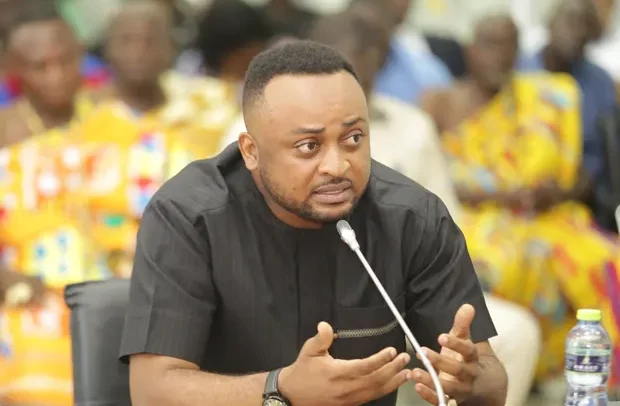Vincent Ekow Assafuah
Member of Parliament (MP) for Old Tafo, Vincent Ekow Assafuah, is urging the Supreme Court to extricate the Judiciary from the political interference by the Executive, by safeguarding the tenure of office of judges and the Chief Justice.
The MP, in his statement of case to a writ challenging ongoing processes to remove Chief Justice Gertrude Torkornoo from office, referred to the constitutional history of Ghana from 1957 on provisions to protect the Judiciary from what he describes as “undue interference with the independence of the Judiciary and protection of the security of tenure of judges.”
Mr. Assafuah through his lawyer, former Attorney General Godfred Yeboah Dame, is urging the Supreme Court to exercise its powers of judicial review under Articles 2(1) and 130(1) to nullify all steps taken purportedly to remove the Chief Justice from office as prayed for in the writ of summons.
Three petitions were filed earlier this year for the removal of Justice Torkornoo as Chief Justice, which the President forwarded to the Council of State for consideration.
Mr. Assafuah then filed a writ at the Supreme Court challenging the decision of the President to forward the petition to the Council of State for consultation without giving the Chief Justice an opportunity to respond to the allegations made against her.
The Chief Justice later wrote to the President requesting copies of the three petitions seeking to remove her from office.
President Mahama responded by giving the Chief Justice 10 days within which to respond to the three separate petitions calling for her removal.
Statement of Case
Mr. Assafuah, in his statement of case filed before the Supreme Court, contends that the right to be notified of charge(s) levelled against a person and to be heard on same is a fundamental and inalienable right enshrined in the Constitution, 1992.
He argues that “the Chief Justice, upon a true and proper interpretation of the Constitution, is entitled to deliver his or her responses to allegations contained in the petition which will be a basis for consultation between the President and the Council of State on whether a prima facie case is disclosed by the petition.”
Counsel for the plaintiff notes that a purported step to furnish the Chief Justice with a copy of the petition and request his or her answers after the consultation process with the Council of State has begun, violates the constitutional requirements of due process anticipated by Articles 23 and 296 of the Constitution.
“It is outstandingly bad, shocking and egregiously unfair for the President to announce a trigger of the removal processes of the Chief Justice under Article 146 to the whole world, when he has not even extended the courtesy of informing the Chief Justice about a receipt of the petition(s) in question,” the statement of case argues.
Regarding the practice in other jurisdictions, Mr. Dame noted that “all advanced legal systems stipulate a rigorous and elaborate procedure for the removal of a judge of a superior court. The procedures do not consider such exercises lightly and are calculated at protecting judges from abusive tendencies to compromise the independence of the Judiciary – a necessary organ for the running of any heathy society.”
BY Gibril Abdul Razak


